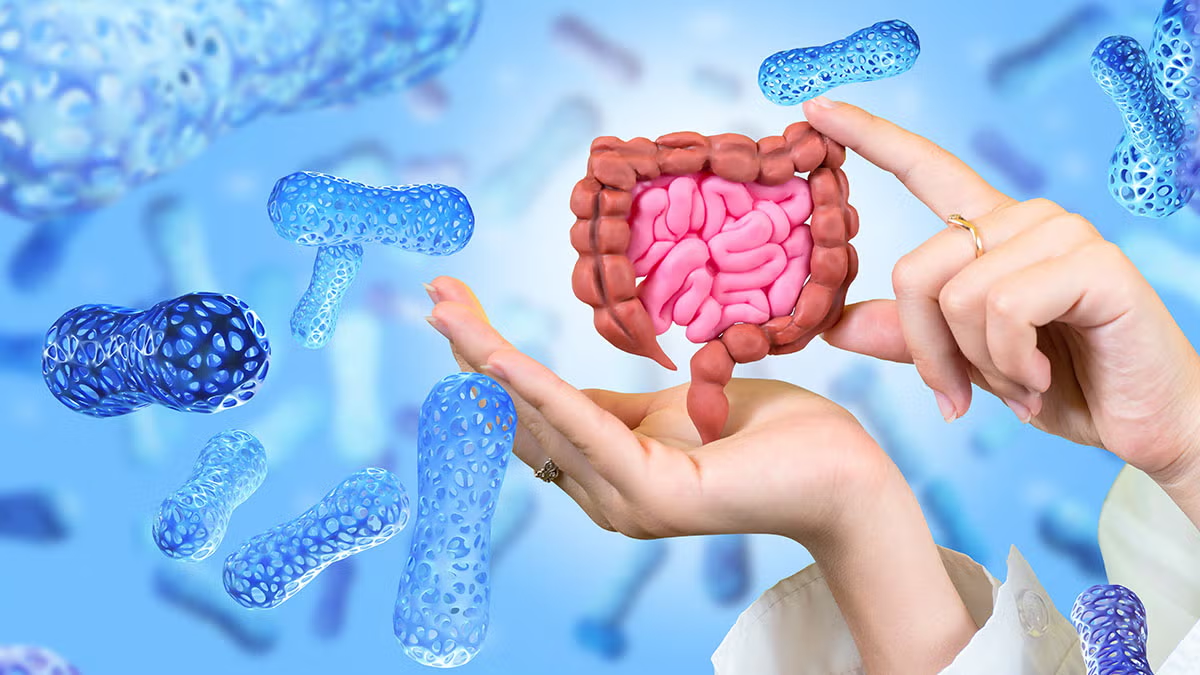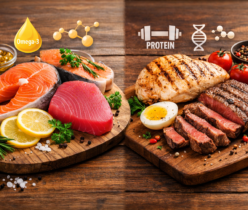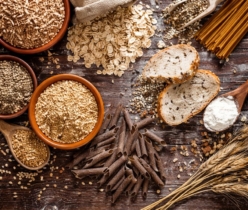Ironically, we cannot even see it with the naked eye, but the center of almost all health conversations today has moved to it. Till recently, the entire population was oblivious to the term “Microbiome”. We are just beginning to realize that the trillions of tiny creatures living in our guts might be the reason for everything, whether we efficiently digest our food or feel our moods are in sync every day.
- The Microbiome Revolution is changing our perspective on health by showing how the microbes in our bodies play essential roles.
A lot of people might ask What is the microbiome?
Imagine a busy, multicolored city living in your stomach. A place where trillions of bacteria, fungi, and other tiny creatures come together to work, live, and serve you every moment.
That’s your microbiome.
A vast majority of these microbes are residents of your intestine, and rather than harming you, most of them assist you. They decompose food that is not easily digested. They produce vitamins. The microbiome promotes the immune system. Others even send messages to your brain, and they affect your emotional state.
That is to say: you are in a microbe bed.
Why the Microbiome Is a More Important Thing Than We Care to Admit.
When discussing digestion, researchers previously attributed it to the stomach and intestines. But the deeper they excavated, the greater they discovered that:
Your gut is related to nearly anything that happens to your body.
Here’s how.
1. The Feeding Place of Gut Bugs Is a Better Place to Start
A balanced microbiome is also good for digestion. But when it gets disrupted, say, from antibiotics or stress or too much processed food, it can lead to bloating, constipation, or pain.
2. Living in the Gut: Your Immune System
It would be incredible to think, but approximately 70 percent of your immune system is in your gut. Bacteria do good things and provide your body with information on what to combat and what to disregard. The lack of them may easily push your organism towards chronic inflammation.
3. Your Gut and Brain are in a Talk all the Time.
You ate them up; you are familiar with what it’s like to feel those butterflies in your stomach, and you are aware that the gut and the brain are connected. Scientists, however, have found that this is a deeper connection than we ever anticipated. The bacteria in your gut help produce neurotransmitters like serotonin, the very same chemical linked to happiness and mental well-being.
The truth is, the whole second brain thing is just hype.
4. Microbes Did Control Your Weight and Metabolism
Certain bacteria help you digest food better, and some may affect how hungry you get. When your gut is in good shape, it’s usually more consistent, energetic, and prone to sugar cravings.
5. Gut Imbalance May Be the Beginning of Chronic Diseases.
Autoimmune problems, diabetes, and even heart disease, most of the long-term health problems appear to have a relationship of some type with the gut. The greater the amount of information available to scientists, the more the gut is an influential control center that governs lifelong health.
What was the Revolution behind the Microbiome?
This subject was put in the limelight by a few major factors:
- The invention of new DNA tools enabled scientists to see the invisible.
Now, scientists will be able to classify single gut bacteria and explain their actions.
- The Fermented Foods gained popularity:
Individuals began consuming kombucha, kimchi, and selecting yogurt with live cultures- and they noticed the difference.
- Personalized Health Took Off:
At-home tests, gut cleanses, and certain types of probiotics brought the microbiome into more approachable mainstream consciousness.
How to Care for Your Microbiome (Without Overthinking It).
The best part?
- It does not require costly supplements and complex strategies.
- Some miracle practices can help keep the gut healthy.
Eat More Fiber-Rich Foods
Fiber is very popular with your good bacteria. Load up on plant proteins in the form of action fruits and vegetables, such as lentils, oats, nuts, seeds, and opportunistic grains.
Add Fermented Food
Yogurt, kefir, sauerkraut, kimchi, miso, tempeh- these foods are a natural supplement to your gut, and there’s so much friendly bacteria. Cutting back on added sugar and ultra-processed foods is among the ways to limit the risk of the disease.
Lower Your Stress Levels
The gut is responsive to stress almost immediately. Even small activities like walking, stretching, or a couple of deep breaths can help.
Sleep Well & Move Daily
Both good sleep and frequent movement enhance the variety of your microbiome, which is quite good indeed.
Don’t Overuse Antibiotics
Use them when you really need them, but not when you do not want them, as taking them means destroying the good bugs as well.
Where the Microbiome Revolution Is Going.
The microbiome remains relatively unknown in terms of its power. Over the next few years, we may witness:
- Microbiome-based medicine
- Individualized probiotic recipes.
- Gastro-centered mental health interventions.
- And customized diets to your special gut composition.
It is already known that the future of health is strongly linked to the gut. The better we treat and favor our microbiome, the more it favors us.
FAQs
1. Simple terminology has it that the microbiome is?
They are the colony of their small bodies, useful bacteria that live in your intestines and facilitate digestion, defense, and mood.
2. What is an indication of an unhealthy microbiome?
It is their tiny bodies, the beneficial bacteria, that reside in your gut and aid in digestion, protection, and mood.
3. What are the signs of a bad microbiome?
Typical signs include bloating, irregular digestion, tiredness, acne outbreaks, frequent infections, and yes, even sugar cravings.



